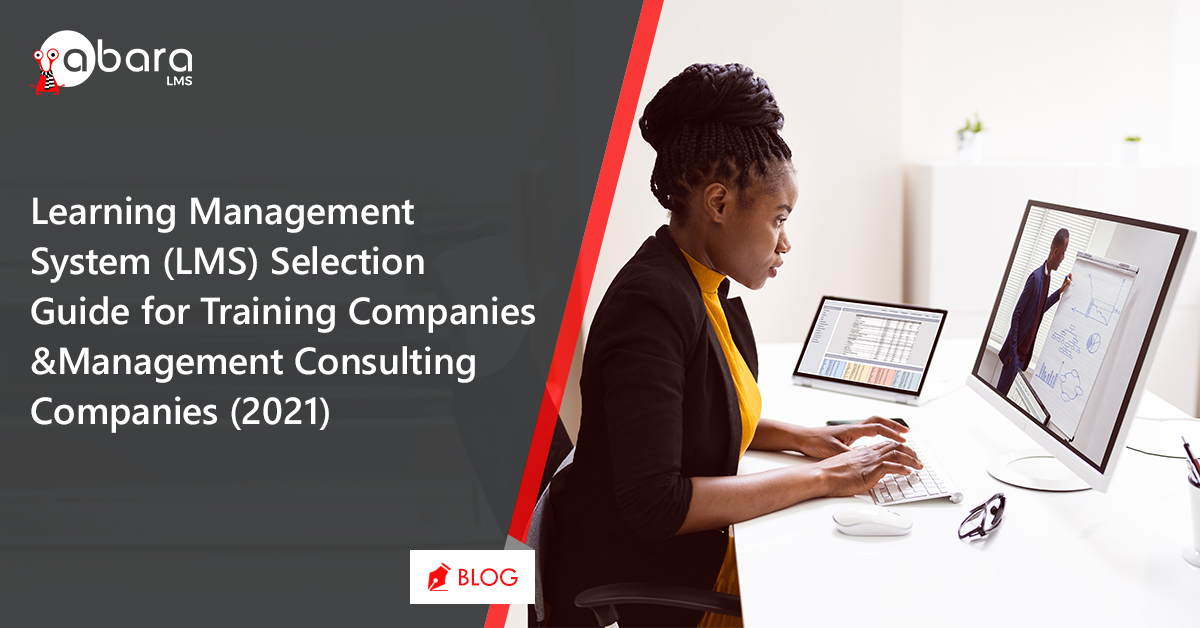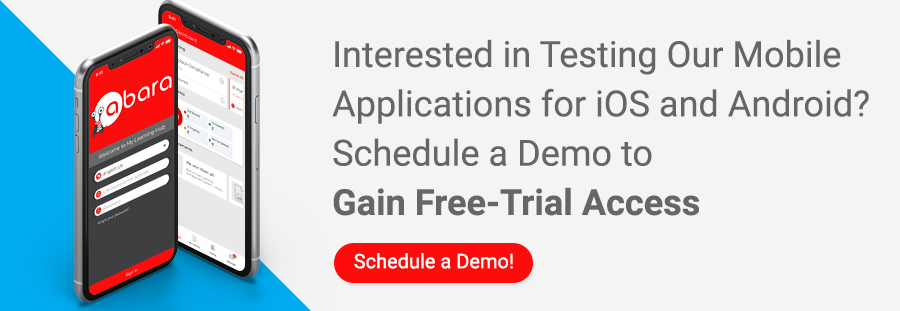Having the right Learning Management System (LMS) can make all the difference to your business growth and profitability for training companies. This is a long-term commitment. Once you identify an LMS for training companies and deploy it at the customer’s end, you need to commit to that LMS for years to come. This makes choosing the right LMS for the first time overwhelming because of the multitude of options available in the market.
The needs of training companies and management consulting companies with a strong training business or revenue stream are unique compared to an LMS selected for internal LMS training. For simplicity’s sake, we will look at training companies and management consulting companies with a revenue-generating training division as having similar end objectives – monetizing their intellectual property and training content.
Functionality and price are the most important factors companies look for while purchasing an LMS.
Building your own LMS has its own set of constraints – https://elearningindustry.com/how-to-choose-an-lms-for-organization. This requires a significant amount of financial commitment, time, and human resources. Plus scaling up, maintenance, and problem-solving become your challenge to resolve.
This comprehensive top LMS selection guide will make it easier for you to identify and narrow down your search for the best-fit learning management system which is optimally aligned to your organization’s vision.
Let us explore the key factors which will guide you to identify and select the right LMS for your organization.
On this Page
Identify your organization’s target customer
The LMS your organization finally selects should fill the gap between your current business objectives and future aspirations. The LMS should have the ability to close this gap. This the first step in this process.
For training companies, their objective is to provide the best solution to their end customers, be it a large corporate or an SMB. The LMS should be simple, flexible, robust, and at the right price so they can convince their customers that this is the right LMS for them. If your target audience is SMB, then your LMS must have certain features. If your target customer base is large enterprises, then the LMS must have some additional features. For example, choosing an open-source LMS for distributing your training content to large enterprise customers may be a poor choice.
List the key LMS features required
Although most LMSes cater to most of an organization’s feature requirements, no one learning management system will be a complete solution encompassing all the features from your wishlist. Therefore, training companies need to shortlist the LMS vendor who will cater to all your mission-critical needs.
Key features widely common in a good training business LMS:
- White labelling: The LMS should allow you the ability to co-brand the LMS for mid-sized or large corporate customers so that their users can experience the training content within a corporate branded LMS portal vs the training vendor’s branding.
- Single sign-on: You should also have the ability to integrate with their internal user databases like ADFS, Azure, Okta, etc. so that you can automate the import and access control.
- Blended learning capabilities: You will need to provide more than just self-paced digital capabilities. Your LMS needs to support live virtual classroom integration, and handle in-person classroom management capabilities.
- Certification-based training: If you are a training business, building a training certification program will add that credibility and structure. The LMS’s ability to run certification programs is going to be critical.
- Multi-tenancy: If you have multiple mid-sized and large customers, a multi-tenant LMS makes a lot of sense. If you also serve a large number of small companies, having longer-term contracts may be better served with a client-specific LMS portal.
- E-Commerce: The ability to sell courses direct-to-customer (D2C) via eCommerce may be important to sell via digital marketing channels in smaller quantities to a wider audience. This is very different as compared to using enterprise or account-based sales teams. Your LMS must have strong eCommerce abilities to be able to leverage marketing driven growthvs sales driven growth.
- Social integration: The LMS must have the ability to offer options for sign-on with integrations to social sites like Facebook, Gmail, Twitter, and LinkedIn. Today, most users use social media in their daily activities, and this will make their process for sign up more convenient.
- Multi-device support: Your LMS must have the ability to run on multiple devices including tablets, iPads, and mobile phones. Having a native mobile App for iOS and Android is a big plus for handling the mobile user base.
- Scalable cloud-based LMS: Your LMS must be able to handle a large volume of users. Using open-source systems often seems to make a lot of sense in the early stages but it runs out of runway very quickly when you attempt to scale the solution. Having an LMS which is cloud-hosted on Amazon AWS or Microsoft Azure makes a lot of sense from a future-proofing perspective.
- Reports and analysis: The ability to create custom LMS reports and filters, and schedule automated reports is a big need that any growing training business needs so that you can analyze progress and keep your customer stakeholders informed.
Data security capability of the LMS system will need to be evaluated as your end customer may have security at the forefront of their key features wishlist.
If any of the above features is crucial to your end customer but is missing in the LMS you are planning to finalize, it’s not a viable option.
Involve all your key stakeholders in identifying the features required
You need to understand the key features your LMS requires. Your key stakeholders are going to be LMS Administrators, trainers, marketing, sales, and operation teams. Since they are at the front-end of the system and interface with customers, getting their buy-in is important.
All their inputs need to be centrally collated to understand the key features needed in the system, so nothing important gets left out.
Budget for the LMS
Every organization will have a finite budget for their LMS, http://staging.abaralms.com/plan-your-elearning-budgets-for-2020/. All factors like monthly or annual charges, one-time setup costs, add on, customization, upgrade and content creation should be factored in while selecting your LMS.
The more transparent the LMS pricing is the better. If your LMS vendor does not share their LMS pricing model on their website, you can be assured that your ability to get a fair price will depend largely on your clout in the buying process and your purchase team’s and some enterprise salesperson’s dark arts of negotiation.
Compatibility to your existing systems and integrations
It’s crucial to ensure the LMS you select can use all the existing resources and materials (the content your customers would have) for their current training. If they are currently using WordPress, SCORM, PDFs, visual aids, the LMS must be able to accommodate all their existing resources. It’s counterintuitive to finalize an LMS and then find out some of your existing training resources cannot be integrated with the LMS.
End-user and administrative ease of access
The system must be simple. The administration teams and the customer are the end-users of the system and must not need to be LMS ninjas to use it. The end-users including trainers and administrators should find the system intuitive. Many customers are lost over a span of time as they do not find the LMS user-friendly.
The LMS Administrators are the customer-facing facet of the LMS. Their current skill level must be evaluated to have a shorter learning curve. Additional training if necessary, should be carried out. The LMS administrators should be able to independently, customize, assign training access and assimilate reports. The more automated the system, the more effective it is.
Customer support and after sales service
While shortlisting an LMS it’s important to check the after-sales support of the LMS company in case of routine and critical events. This can be facilitated and evaluated at the time of availing the demo and trial. The ease of accessing the customer service team’s support for your administrative teams, customers, and trainers should play a pivotal role. The turnaround time for resolving issues and response from customer service determines what level of support you can expect in the future.
Existing customer references and testimonials
The existing customer testimonials can be a key deciding factor and make a purchase decision for the LMS easier. Most e-learning companies showcase their list of existing companies and their testimonials which can influence and guide your purchase decision.
How long the customer has been in this business will be an indicator that you can look at this company for long-term business continuity and support.
Customization, scalability and future roadmap of the LMS
While finalizing an LMS, you need to plan for future as well as present requirements. If you foresee your customer base growing, the ease of scalability seamlessly is crucial. Envisage what you may require in the future like some add-on, design and customization, etc. Can the system incorporate the same within a reasonable timeframe?
Most growing LMS systems are evolving and have a roadmap wherein they have a timeline for adding new features to their system. Some features may not be important right now. However in the future, this could be valuable, so please review the LMS road map.
The time frame for delivery and handholding during the set-up process
You need to consider the time frame in which your LMS vendor will have the system up and running at your end. If it’s an off-the-shelf, cloud-based product, this should take a standard setup and time to train and onboard your LMS administrators. If some customization is required, this would take additional time. You need to have deadlines in place for each stage of the launch.
Similarly, how the LMS company can support your internal teams for initial setup, customizations and support is vital.
Free trial and product demonstration
Once you have compared all LMS vendors from your list of potential vendors, you should utilize the free trials and demonstrations against your products, systems and services. The LMS should be able to utilize all your existing resources like videos, media, as well as integrations with current systems used like SCORM, WordPress which should be tested with the LMS demonstration. An LMS company that provides a free trial is a strong indicator that the LMS is faster to deploy versus an LMS that requires you to contact a salesperson for a demo. Modern SaaS systems are designed for near instant rollout. Large enterprise systems or legacy LMSes require a lot of configuration just to demo the system.
Prepare an internal demonstration of the content you would like to present to the end customer on the LMS to practically gauge your expectations in the system vis-a-vis the system’s actual capability.
Ecommerce and monetization
A lot of training companies sell their courses to large and small companies as well as individuals. E-commerce offers the clients and partners the means to purchase courses and training within the LMS.
A good LMS must allow for a training company to monetize their courses and intellectual property. They must have a robust payment gateway well-integrated with the LMS.
Conclusion
No LMS is perfect. Selecting the right Learning Management System for your organization is more of science than art. The process of identifying your organization’s key priorities on the LMS front, shortlisting, evaluating, comparing, and finalizing an LMS can be simpler if you follow this comprehensive guide.
With the current conditions of remote training and work from home, the potential for online training has grown leaps and bounds over the last year. This upwards trajectory would continue for years to come, bringing with it profitability and scope for training companies and management consultants to leverage their intellectual property and training resources and via an effective LMS.
Discover the endless possibilities of a great learning management system. ABARA LMS gives you a 30-day, no-strings-attached, free trial of their LMS to make an informed decision. All you need to do is sign up at http://staging.abaralms.com/free-trial/ or sign up for a free one-on-one demonstration and talk to our experts http://staging.abaralms.com/schedule-a-demo/ and experience the system yourself without any commitment.


